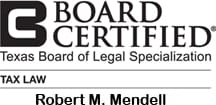What Are The Advantages And Disadvantages For Nonprofit, Tax-Exempt Status?
What are nonprofit organizations?
Nonprofit organizations are trusts, corporations or associations that have been organized for a charitable purpose and can qualify for tax-exempt status from the federal government. These organizations are also referred to as 501(c)(3) organizations, because they qualify for tax-exempt status under section 501(c)(3) of the Internal Revenue Code.
What are the advantages of nonprofit organizations?
The main advantage of tax-exempt status for nonprofit organizations is obviously that they do not have to pay federal taxes on their net income. In that way, the earnings can be cycled back into the organization to improve it. Contributors to nonprofit corporations also receive a benefit: their contributions are tax deductible. Therefore, many contributors use donations to 501(c)(3) organizations to manage their tax burden, to the benefit of the organization’s budgets.
What are the restrictions on nonprofit organizations?
Of course, these advantages come with certain restrictions on the activities of a nonprofit organization. To obtain a 501(c)(3) exemption, the organization must be devoted to charitable, religious, educational, scientific or literary pursuits or be organized to test for public safety, foster national or international amateur sports or prevent cruelty to children or animals. Charitable has been further defined to include relief for disadvantaged or underprivileged persons, advancing religion, education or science, preservation of monuments and public spaces, elimination of discrimination, advancement of human and civil rights and promoting a healthy community.
Despite these restrictions, nonprofit organizations are prohibited from political campaigning or lobbying. Activities of this sort endanger the organization’s 501(c)(3) status. Common examples of this restriction occur when religious leaders are cautioned on engaging in political endorsements from the pulpit or when an aid organization is prohibited from lobbying as a substantial part of its activities.
Nonprofit organizations must also maintain their nonprofit status: No shareholder or individual can receive net profits from the organization, and there can be no benefit to private interests, such as the creator’s family.
Nonprofit organizations do not escape other typical corporate obligations by virtue of their tax-exempt status. As employers, nonprofit organizations are responsible for all employer obligations such as obtaining an Employer Identification Number (EIN) from the IRS and withholding all applicable taxes from employee paychecks. Nonprofit organizations are also required to report gross receipts to the IRS on an annual basis, unless gross receipts total less than $25,000. To obtain tax-exempt status, organizations must report three years of past financial history, or three years of projected budgets if in existence for fewer than three years.
How can an individual determine the tax-exempt status of a nonprofit organization?
The Internal Revenue Service can revoke the tax-exempt status of a nonprofit organization that no longer qualifies for the status under section 170(c)(2) of the Internal Revenue Code. The IRS maintains a list of organizations that no longer qualify for tax-exempt status in Publication 78. Recent revocations may appear on the IRS Web site or in the Internal Revenue Bulletin (IRB).
If an individual wishes to make a tax-deductible contribution to an organization but questions the organization’s status, he or she can check the IRB or Publication 78 before making the donation. The IRS may not allow tax deductions for donations made after the date that the revocation is announced in the IRB (unless the nonprofit organization appeals the revocation and a final determination on the appeal has not been made).
Copyright © 2008 FindLaw, a Thomson Reuters business
DISCLAIMER: This site and any information contained herein are intended for informational purposes only and should not be construed as legal advice. Seek competent counsel for advice on any legal matter.



